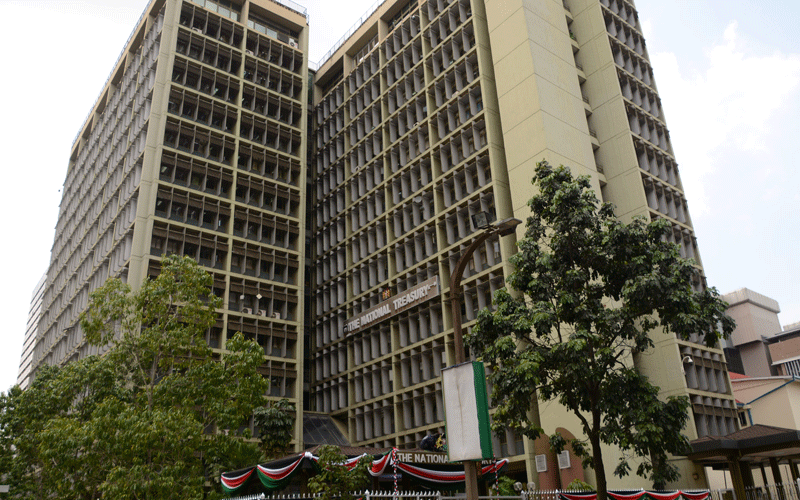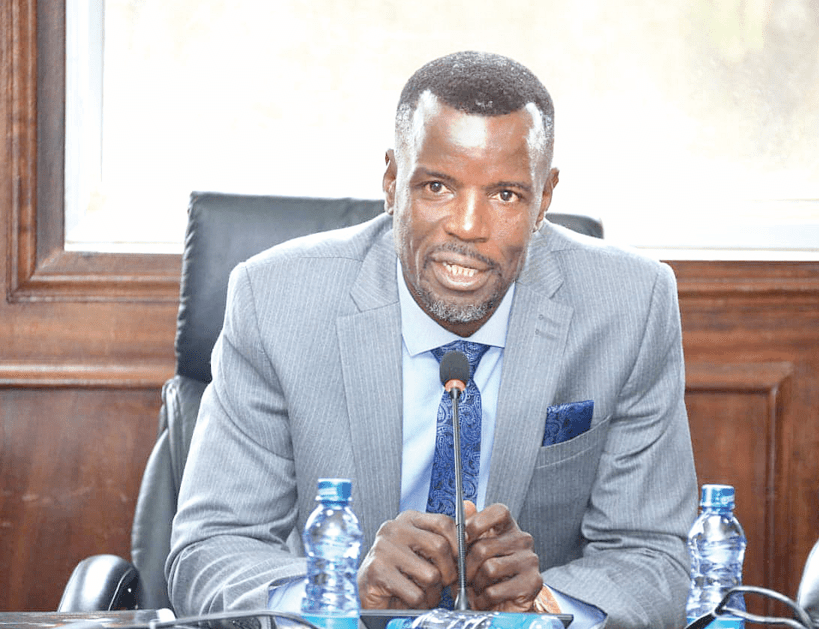Yatani asks for Sh26 billion hours to new budget

Mercy Mwai @wangumarci
The National Treasury was last night seeking Parliament’s approval for an additional Sh26.8 billion to plug holes in the current budget, only hours before Cabinet Secretary Ukur Yatani unveils an ambitious Sh3.66 trillion budget.
Yatani submitted the supplementary budget II to the National Assembly seeking its approval for the extra allocation to finance the balance of this financial year’s budget.
The move came hours to the unveiling of the 2021/22 budget by Yatani this afternoon. This follows the closure of general proposals for the budget statement to the Treasury on May 26.
Yatani’s unexpected move to seek additional funds immediately raised concerns about Treasury’s ability to finance the 2021/22 budget.
In a brief to legislators, the CS explained that adjustments had seen some of the programmes exceed the 10 per cent threshold set by the Public Finance Management Act 2012.
“Following the adjustments we have made to votes and programmes, some programmes have exceeded the 10 per cent threshold.
We are in this regard requesting for special approval of the expenditures adjustments which are beyond the 10 per cent threshold in accordance with regulation 40(9) of the Public Finance Management Regulations 2015,” the CS said in the statement.
“The National Treasury has approved expenditures amounting to Sh26.8 billion under article 223 of the Constitution,” read the brief to the National Assembly.
Yatani said the additional funds would be channeled towards Covid-19 related expenditure, salary adjustments, changes in development partner-funded projects as well as to regularise approved additional expenditure and re-allocations.
Following the move, the overall ministerial cumulative expenditure in the 2020/21 financial year has increased by 4 per cent, representing an additional Sh75.4 billion from the original approved estimates.
Speaking to People Daily last night, Budget and Appropriations Committee (BAC) chair and Kieni MP Kanini Kega acknowledged that supplementary estimates are always a concern to the committee as they disorganise the budget.
“Supplementary estimate is a huge concern to us as it either disorganises the budget or leads to cuts; you can imagine supplementary estimates coming at a time when we are looking at the budget, it’s a lot of work,” he said.
Former BAC chair and Kikuyu MP Kimani Ichung’wa said the tabling of supplementary estimates so late in the day demonstrates government’s inability to finance the next financial year’s budget.
“As a country, we have refused to accept our problems and to deal with them and that is why we are having an unrealistic budget which we will not be in a position to finance,” he said.
“A supplementary estimate is either evidence of poor planning or a weak framework.
When you have a budget that is so ambitious like this one, it means you will end up with many supplementary estimates to be able to finance it.”
Kenya’s budget is being presented with full realisation that while the world is slowly adapting and adjusting to the realities brought about by the Covid-19 pandemic, the government has a critical role to play to stabilise the economy.
The economy has been projected to grow by 6.3 per cent in the coming financial year, an improvement from the 3.8 per cent that is set to be achieved in the current year.
This ambitious growth rate is set to be achieved through a mix of fiscal and monetary policies as set out in the Budget Policy Statement and the Finance Bill, 2021.
The policies are set to cushion the common man from adverse effects of the pandemic while at the same time spurring growth of the economy.
The National Treasury has indicated it is seeking to raise the country’s debt ceiling to Sh9 trillion, less than two years after increasing it to Sh6 trillion.
In the past one year, the country has received several loans, including $739 million from the IMF and an additional $2.4 billion to assist the government roll out Covid-19 response measures.
The limited fiscal space has jolted the government to explore various taxation measures meant to expand the tax base and increase revenue collections.
Some of the salient tax measures that the government aims to introduce in the next financial year include introduction of more restrictive conditions for multinational enterprises to get interest expense deductions on their borrowings.
Additionally, there will be increased transparency of their operations beyond Kenya with introduction of a requirement to disclose certain critical financial and non-financial information relating to their foreign operations.
Yatani will once again utilise taxes to finance the budget estimates based on proposals included in the Finance Bill 2021.
The tax proposals indicate the government will increase its tax revenue collections in the coming financial year.
Though the statutory tax rates may not be increased, the proposals in the Finance Bill will allow the government to expand its tax base and as a result collect more tax revenues.
Finance Bill has proposed some unsettling proposals with respect to Value Added Tax (VAT) by fronting the taxation of ordinary bread at 16 per cent and the classification of exported services from zero rated to exempt.
Francis Kamau, a partner at Ernst Young, says that 85 per cent of the budget as provided in the Bill will likely stand.
“Changes made in April will likely remain. However, it is a budget for big corporations.
Meaning that while it hits at the big boys, it will have a knock-on effect on the cost of goods and services indirectly,” he said.
That is how the cost of cooking gas and ordinary bread will be affected.
The taxation of ordinary bread will have a direct adverse impact on most households in Kenya as it is the go-to breakfast in many households.
The classification of exported services as exempt for VAT purposes goes against international best practice, but it seems the government’s last attempt at dealing with the contentious issue of VAT refunds on exported taxable services.
VAT on digital marketplace supplies has also been proposed to be extended to any supplies made over the internet or an electronic network.
Kamau further warns that should some of these proposals have an adverse impact on companies, the other indirect effect will be layoffs.
“That will be a possibility in the event of costs of operations increasing a lot,” he said.
Foreign enterprises that were only liable to withholding tax in Kenya, may now be liable to corporate income tax if they provide services in Kenya for a period in excess of three months within a year.
The tightening of the interest deductibility provision to 30 per cent of earnings before interest, taxes, depreciation and amortisation will see more entities paying tax on interest expense that was untaxed in prior years.
Going forward, Kamau foresees tax laws amendment to deal with what he calls emerging revenue issues.
“Most of these tax issues will be amended around August,” he said.
Accountancy body PKF agrees, and has called upon the government to restructure its public debt management and to reconsider some of its recent tax policies if it was to remain competitive in the region.
PKF warned of a possible debt trap by the state if alternative sources of financing such as the public private partnerships are not considered – and further urged for adoption of long-term and convincing tax policies.
“Kenya’s debt has ballooned over the last few years with 50 per cent of the debt being foreign, and therefore the stability of exchange rates will play a big role in sustainability of these debts going forward.
Most of this debt has been expended towards big infrastructural projects whose benefits will be realised in the long term,” reads in part PKF’s Kenya Budget 2021 report.











